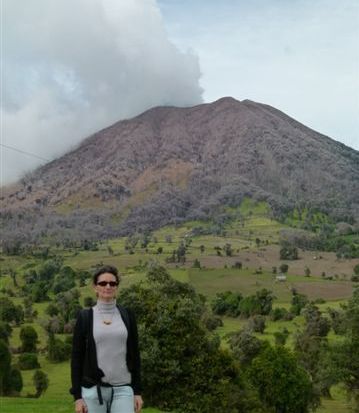|
Socio-Anthropologist |
|
|
CIRAD, Environment and Societies
CATIE Centro Agronomico Tropical de
Investigacion y Ensenanza
Fields of Competence and Expertise 28 years of experience Sociology of innovation in rural areas; Relationships between societies and trees; Relationships between agriculture and the environment; Systems of agroforestry and forestry; Participatory action research; Participatory methods; Teaching in rural sociology; Farming systems approach; Anthropology of development; Organization and management of research projects; Project management
|
 |
Research Experience
Recognizing the capacity of farmers to innovate in the face of local and global environmental risks
Key words: strategies, social perceptions, local knowledge, innovation, rural dynamics, agroforestry, environmental risks, environmentalist pressure, environmental management, farmers, livelihood, family smallholding, family-farm system, partnerships, stakeholders, science and society, social organization, action research in partnership, socio-anthropology.
My research contributes to shedding light on the tensions and synergies raised by interactions between agriculture and the environment in a context of environmental policy supported by the government or international institutions (including NGOs). In this context, an understanding of the strategies, practices, innovations, knowledge, and perspectives of farmers on one hand, and of the ecosystem services provided by production systems on the other, enables a better fit between intentions and environmental actions, namely enhanced environmental conservation in an effective partnership with local stakeholders. An understanding of the innovative capacities of local stakeholders to cope with local and global risks enables research and development bodies to position themselves better in their efforts to accompany local and national stakeholders.
This recognition implies rigorous work to avoid falling into the “ideological populism” denounced by Olivier de Sardan (1995). This rigour also will help to clear up confusion resulting from cognitive biases or unthinking militant engagements. Such amalgams also exist in the world of development and environmental protection agencies (for example, small farmers → good knowledge of the environment → strong capacity to manage natural resources well).
One of our focus points will be to show the plurality of stakeholders and their strategies by calling upon our socio-anthropological skills.
Main question: What innovation processes are developed by local stakeholders managing agroforestry and forestry systems to cope with local and global environmental risks?
Q1 In what ways does local knowledge contribute to farmers’ perceptions of change and of adaptation to environmental changes (climate, biodiversity)?
Q2 What interactions take place between project holders and local stakeholders?
Teaching Activity
Teaching in initial and continuing education .
Design, organization and facilitation of action research workshops: http://sociology-agroforestry.cirad.fr/objectives
E-learning: design, realization, tutelage: http://entretiens.iamm.fr
Organization and facilitation of research seminars. Supervising Masters and PhDs.
Project Participation
http://funcitree.nina.no/Home.aspx
http://intens-fix.cirad.fr/le-projet-intens-fix
Publications